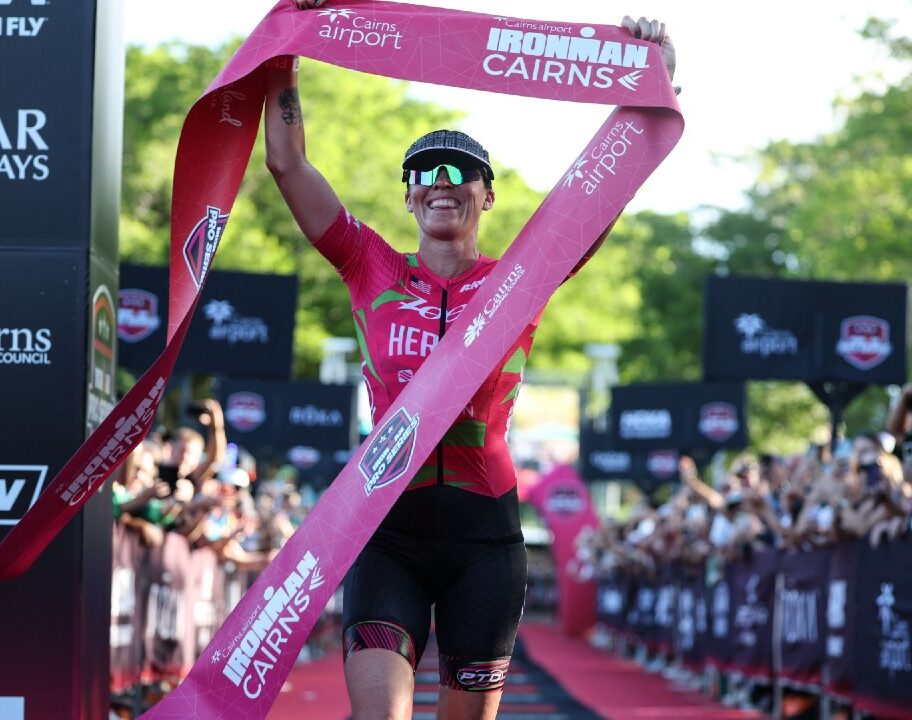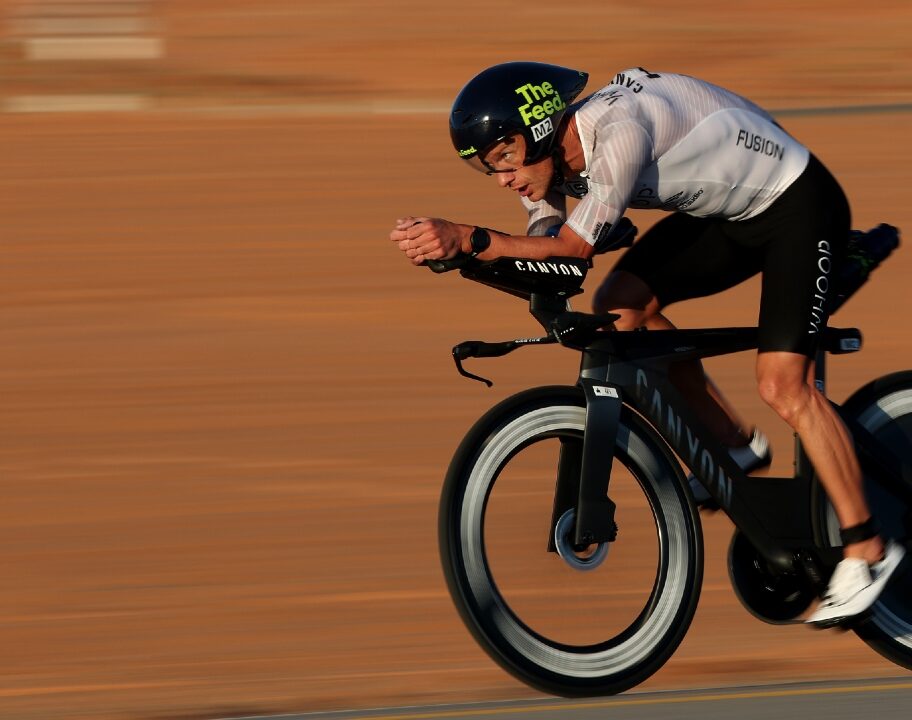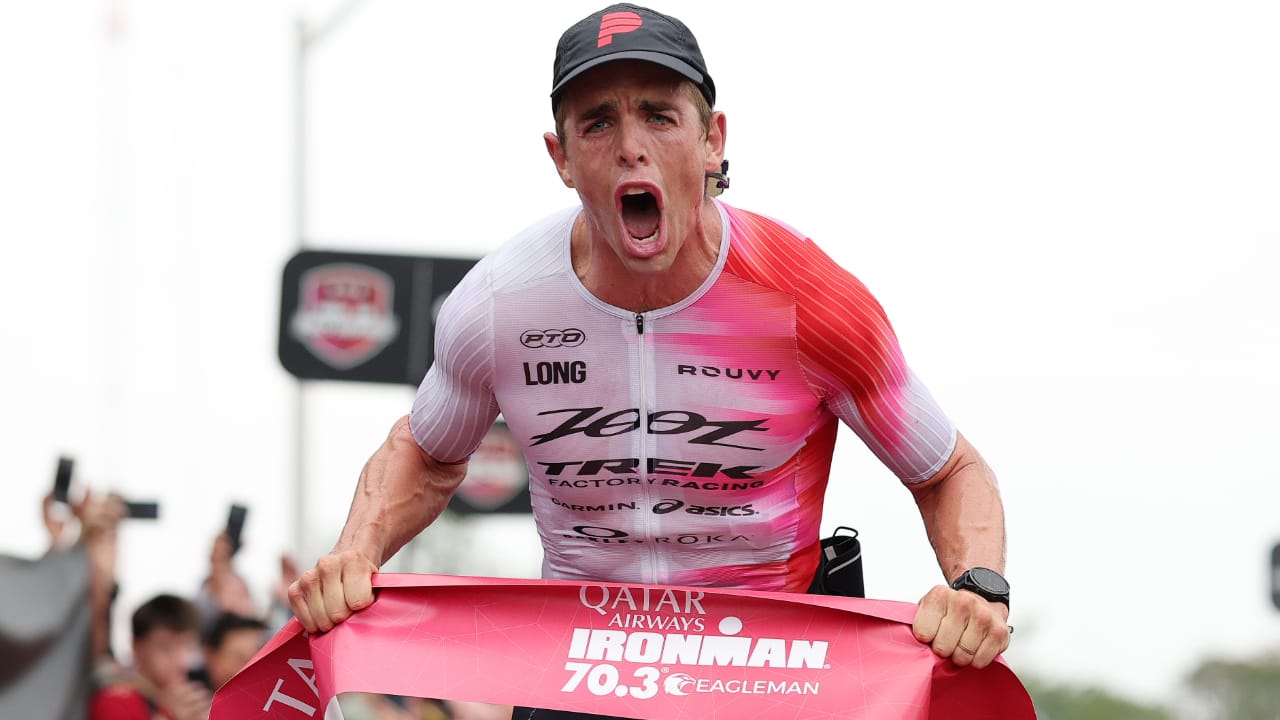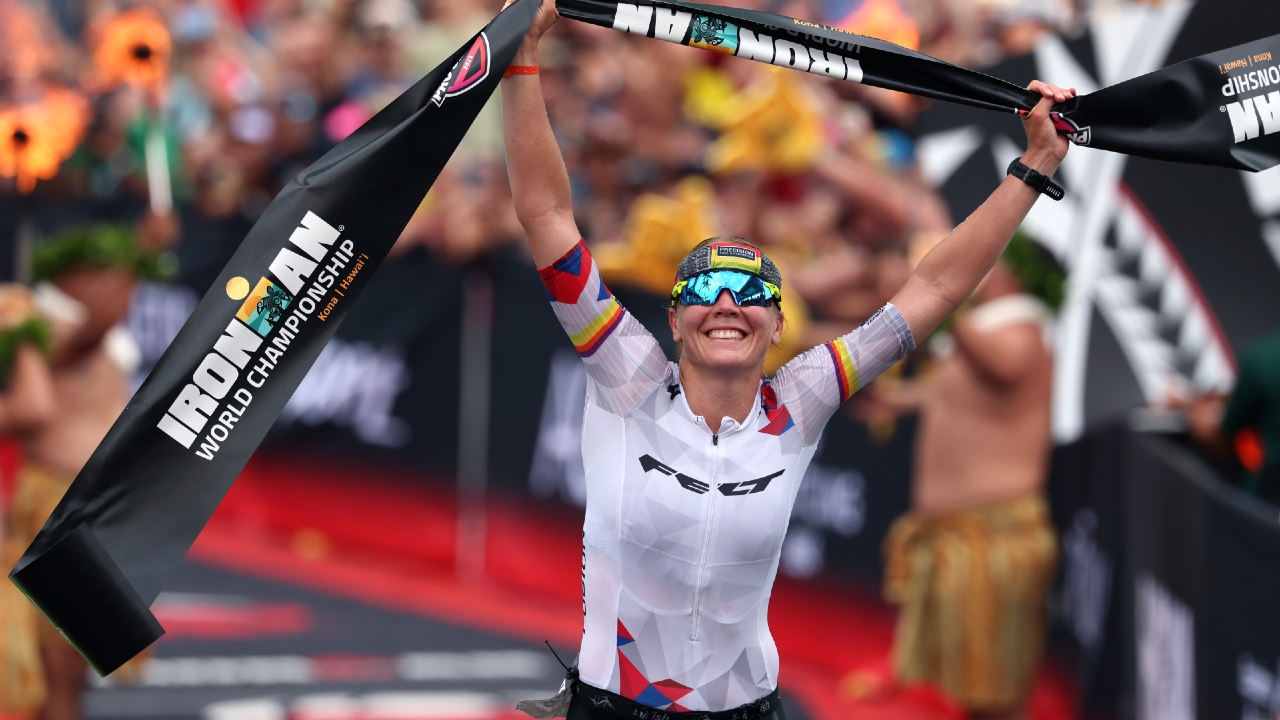Back in 2007 when Loretta Harrop announced her retirement from triathlon. Tri247’s Annie Emmerson met up with her and chatted about her career.
When Loretta started out as a young triathlete she was asked by the Australian Institute of Sport to carry out a number of tests including a VO2 max test. Our VO2 max is the maximum amount of oxygen that can be removed from circulating blood and used by the working tissues and muscles during exercise! It is not the only factor which decides whether a person has the potential to be a great athlete, but it certainly is one of the more important ones! The tests were carried out on Loretta and her VO2 max was found to be below average! For most wannabe professional athletes these tests could have been disastrous and most athletes would have been hanging up there running shoes and searching for a new career, but the results did not deter Loretta in any way. In fact the whole day had been a real inconvenience for her, after all, so strong was her self-belief that she wasn’t interested in a few random statistics!
“I remember being quite annoyed that this ‘test’ was an interruption for my training day. They, of course, wanted to spend hours doing stuff! If I wanted to be funded – at this point I needed the money – I had to abide by their rules. My attitude was completely carefree about it. To be honest, I was almost in defiance to it because I knew my goals and what I wanted to achieve and I had a huge self-belief that I was going to make it to the top. I never cared much for numbers or statistics. What are the chances of losing a mother to brain cancer and having a brother killed whilst riding on the road? Stats don’t matter if it’s your mother and brother, I can tell you!”
“Anyway, I did my test and was noted to be below average, blah, blah, blah. I had a laugh to myself, I knew I was going to be great and I would find a way to be great even if I didn’t have their VO2 number. I guess in a way I was lucky to be dumb. I didn’t even know what VO2 was or meant, so why would I give a rats what number they gave me and if THEY thought I would never be a Champion. I thought I would.”
So it appeared from the start of her career that she was already up against a pretty major hurdle, yet she proved that even though she apparently had ‘less than average ability’ her self-belief gave her the power to override it.
From the start she knew she had to work hard. She had a huge work ethic and if she was at fault in anything it was over-doing the training, but this also gave her masses of confidence. As with all great winners, whether it’s Michael Schumacher or Tiger Woods, they have one thing in common, 100% attention to detail, and Loretta was no different. When asked, “was she ever nervous before a race”, this was her reply.
“This is a question I find interesting. I was different to most of my competitors, I think because the closer the race got the more confident I got! Firstly, I have a huge work ethic and never left it to race day to find out if I had self-doubt. I would train at my best all the time, no excuses. This gave me nothing but confidence on the start line. My mantra was ‘bring it on’, I wanted to see what I could do next. I would say I was arrogant, but more internally. I was never rude to anyone, but no one knew what I was thinking either.”
“I knew I had done more work than my competitors because that was the key to my training. I also knew that they would fold before me. So I was never anything but anxious to start the race. I have never been one to talk to many people or go out of my way to talk to others at races. I get very zoned in and quite aggressive within myself. Racing was like a war to me and I actually found the mental preparation more exhausting than the physical side of it.”
So, where did this huge self-belief come from? Is an athlete born with it, is it something we can develop, or maybe it’s a bit of both? In Loretta’s case there were certainly personal issues that gave her a strong perspective on life. Losing her mother at an early age and then her brother to a road bike accident a few years later were without a doubt life-changing experiences. They also gave her the opportunity to see the ‘bigger picture’, to see that there is so much more than the world of racing and sport, that it’s just a very small part of life as a whole.
“I believe it was a combination. I got a lot of attention right through my childhood as a ‘swim star’. When I was a kid I never wanted to get second place, never! I learned to race and win from an early age. I don’t have a degree for intellectual intelligence but I believe I have degree of the highest order in racing! After my childhood was when my mother got sick from cancer and I saw things I never would have seen in my worst nightmare. It showed me what the human spirit and the lust for life really can do. It also showed me what real sacrifice and real fight was about. I learnt how to never give up until the last breath is taken and then you move onto building it all over again, brick by brick.”
Staying focused is vital to winning! How many times do we see tennis players sail through matches until it comes to the crunch, the nerves set in, the focus is lost and they lose a match that was there for the taking! It happens every day in sport, but what we will see time and time again is that the winner’s are the ones that stay the most focused, take a look at Schumacher or Federer! So, how could Loretta stay focused during so many hours of training and then two hour races?
“I was very focused in a race, like I said, it was like going into battle for me. I would prepare just like it was just as important. Stupid I know but I got the best out of myself this way. I was ready for anything in a race that could change any second in two hours. Mainly I would talk myself through the physical pain and just enjoy that hurt. I would enjoy it because I would know (or at least believe) I was the fittest out there, so imagine how much the other girls were hurting. Quite often i would pick a moment in the race where I would say to myself, ‘right now stick the knife in and twist it’. I told you I was aggressive inside!”
Again we see the attention to detail. She didn’t wait until the race to work out her strategy; she knew what it was already. Her planning and preparation were in place which enabled her to stay focused on the job in hand. She also had discovered a method that worked for her and would use it every time.
So, how does an athlete keep focused? After all we are only human. Being prepared for adversity and making changes are all part of winning. Tiger Woods was at the top of his game when his coach decided he needed to make dramatic changes to his swing. He was brave enough and prepared to take a few steps backwards before he could go forwards again. He did just that and is once again the best in the world. Loretta’s story shows us how she faced adversity with her mental power and determination. She could have packed up her bike and gone home as a loser, after all she had a good enough excuse, her brother had been killed whilst out training on his bike only months earlier. But she didn’t, she worked it out and then won the race.
“I lost confidence on the bike a couple of times. Once I do remember a world cup in Geelong, not long after my brother had been killed. It was teeming with rain and the course was hairy even in the dry. I was clear favorite and I thought my weakness and fear was about to be exposed because I just could not ride in the rain. After an initial flip out I got to be alone in my room and looked in the mirror and said ‘I have to face this fear head on’. I was more afraid than anything of having to live with the fact that I had let this stupid fear beat me. So I tackled it head on, like I had no choice. That is the best way for me, I work great under that ‘no choice’ banner. When things go terribly wrong in my life I had to face them. There was no hiding and I treated fear of any sort in that way.”





![Caroline Livesey wins the first ever Scottish National Gravel Championships in August 2025. [Photo credit: Outsider Events]](https://www.tri247.com/wp-content/uploads/2025/11/Caroline-Livesey-scots-national1.jpg)













